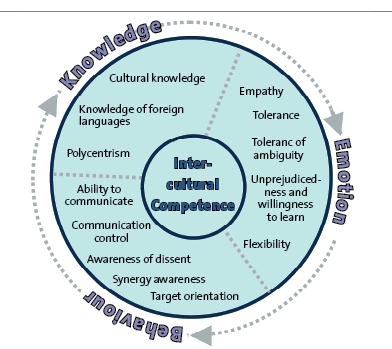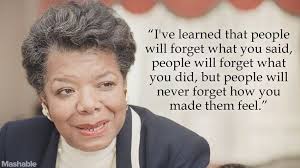 Ethnocentrism is the view that one's own culture is better than anyone else's culture. It may present itself in the most subtle of ways or at times very blatantly for instance when a patient informs us that they are unwell due to past transgressions. What is the first thing that comes to your mind? Reflect on it. Did it affect how you handled them? Be honest with yourself.
Ethnocentrism is the view that one's own culture is better than anyone else's culture. It may present itself in the most subtle of ways or at times very blatantly for instance when a patient informs us that they are unwell due to past transgressions. What is the first thing that comes to your mind? Reflect on it. Did it affect how you handled them? Be honest with yourself.
Do you finally see why cultural competence is important?
From our above definition, we realize that culture can be easily categorized into two; the seen and unseen aspects. See below

Cultural competence in nursing helps one to
- Develop awareness of one’s own sensations, thoughts, and the environment without letting it have an undue influence on those from other backgrounds.
- Demonstrate knowledge and understanding of the client’s culture.
- Be more accepting and respectful of everyone's cultural differences.
- Aid in adapting care to be congruent with the client’s culture.
 So what levels of cultural competence do we fall in? To fully understand this, there exist different self-assessment tools one may use. To access the most recent versions is at a fee but one free example is the Ethnic-Sensitive Inventory ESI; Ho 1991. Look it up. Cultural competence is categorized as
So what levels of cultural competence do we fall in? To fully understand this, there exist different self-assessment tools one may use. To access the most recent versions is at a fee but one free example is the Ethnic-Sensitive Inventory ESI; Ho 1991. Look it up. Cultural competence is categorized as- Unconscious incompetence which is not being aware that one is lacking knowledge about another culture
- Conscious incompetence which is being aware that one is lacking knowledge about another culture
- Conscious competence which is learning about the client’s culture, verifying generalizations about the client’s culture, and providing culturally specific interventions
- Unconscious competence is automatically providing culturally congruent care to clients of a diverse culture.
By understanding the above we then can provide culturally congruent care by
- Cultural Care Preservation/Maintenance -where we look at what we can do to preserve and maintain the cultural practices of an individual or family while receiving safe, holistic care somewhere in the Healthcare Delivery System. For example when we allow for a religious leader to pray for a loved one before they are taken into theatre or for instance or we encourage direct care such as bathing, feeding, and other activities of daily living by family members who may be interested in actively contributing in the care of a loved one
- Cultural Care Accommodation/Negotiation -where we look at what we can do to accommodate the patient and negotiate with the patient/family within the healthcare environment to provide culturally congruent care, For example, when we allow the placing of a band on the navel of a newborn as it is believed it provides healing and protection.
- Cultural Care Repatterning/Restructuring- where we look at what we need to do with the patient and family to re-pattern or restructure their lifeways to promote healing and wellness, always being cognizant of the cultural influences that affect why they do what they do in their life experience. An example is when there is a patient who does not believe that they need an advance directive because “death is up to God.” The nurse can educate her about having her wishes being followed when she can no longer make decisions or speak for herself. Explaining that by creating advance directives, her wishes will be followed
In conclusion, as we continue to make ourselves more visible as professional nurses. It is valuable that we always recall this quote by Maya Angelou which states;
;
No comments:
Post a Comment